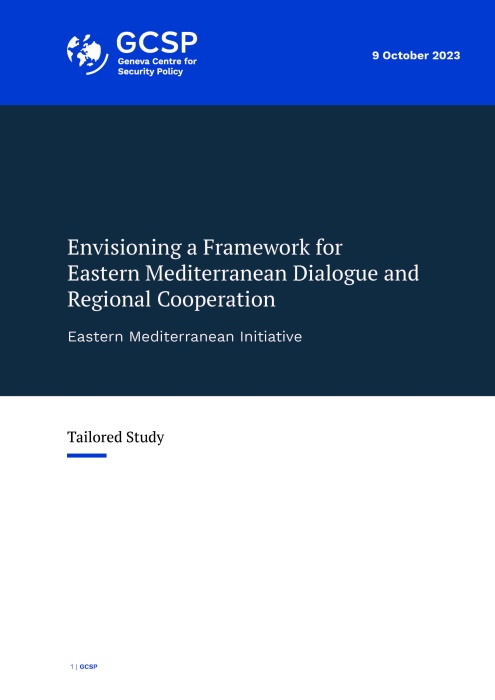Envisioning a Framework for Eastern Mediterranean Dialogue and Regional Cooperation
The rapid developments that have unfolded in the eastern Mediterranean over the course of the last decade have reinforced the notion of its emergence as a distinct region, highlighting the promise of greater cooperation among its states and better lives for its peoples.
Today, there is a growing awareness of the geopolitical importance of the eastern Mediterranean in its own right as an arena with its own dynamics of cooperation, competition and conflict, thus endowing it with the characteristics of a distinct region. The possibility of the eastern Mediterranean achieving far greater cooperation in a variety of spheres has also gradually assumed a greater importance in the outlook of the region’s key littoral states. It is possible to argue that a high level of interaction and interdependence continues to prevail as a distinct dynamic of the contemporary eastern Mediterranean, in a context that is much less defined by the north-south divide that has long dominated the international politics of the wider Mediterranean region.
An opportunity currently presents itself for states of the eastern Mediterranean to chart a path forward towards greater regional cooperation, thus establishing a foundation that can potentially usher the region towards a future of greater economic prosperity, stability and – eventually – peace. The key to constructing such a foundation is enhancing confidence among regional states through a process of political dialogue that is premised on envisioning the eastern Mediterranean as a “shared region”.
Towards that end, participants of the Eastern Mediterranean Initiative propose the establishment of a regional forum that would be known as the Eastern Mediterranean Conference for Cooperation (EMCC) and based on the principles of the UN Charter. This forum or framework would provide a multilateral platform for the peaceful resolution of disputes in order to build a foundation for confidence-building and to prevent, mitigate and, it is hoped, fully resolve conflicts between/among its participating states. The nature and scope of such a process would evolve gradually over time through incremental steps designed to enhance trust and thus advance the legitimacy of the framework as a whole.
The rationale for the establishment of the EMCC builds on previous initiatives for the Mediterranean, namely the Euro-Mediterranean Partnership, the Union for the Mediterranean and the European Neighbourhood Policy. The inherent value of a forum for political dialogue for the eastern Mediterranean lies in establishing a platform for much-needed region-wide political dialogue, with the objective of building a foundation on which increasingly greater regional confidence and cooperation can be built. At the same time, establishing a forum for political dialogue is intended to provide the institutional basis that can give expression to an emerging eastern Mediterranean “shared region”, with the impetus for the forum emanating from within the region for the states and peoples of the region. Both of these aspects – the political nature of the dialogue and a focus on the eastern Mediterranean as a shared region – address what have been the glaring deficits of previous attempts at devising regional cooperative frameworks.
Disclaimer: The views, information and opinions expressed in this publication are the author’s/authors’ own and do not necessarily reflect those of the GCSP or the members of its Foundation Council. The GCSP is not responsible for the accuracy of the information.

